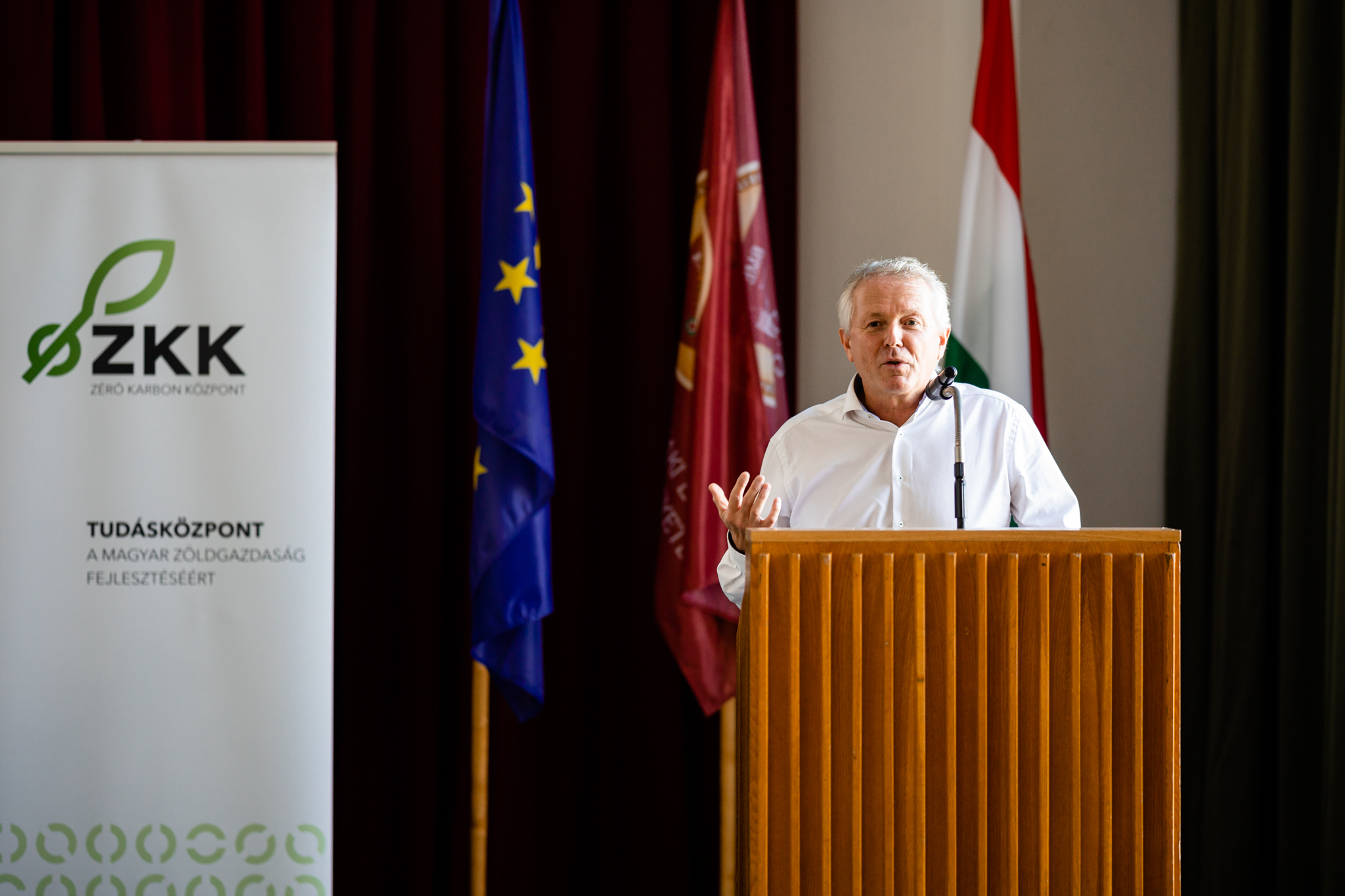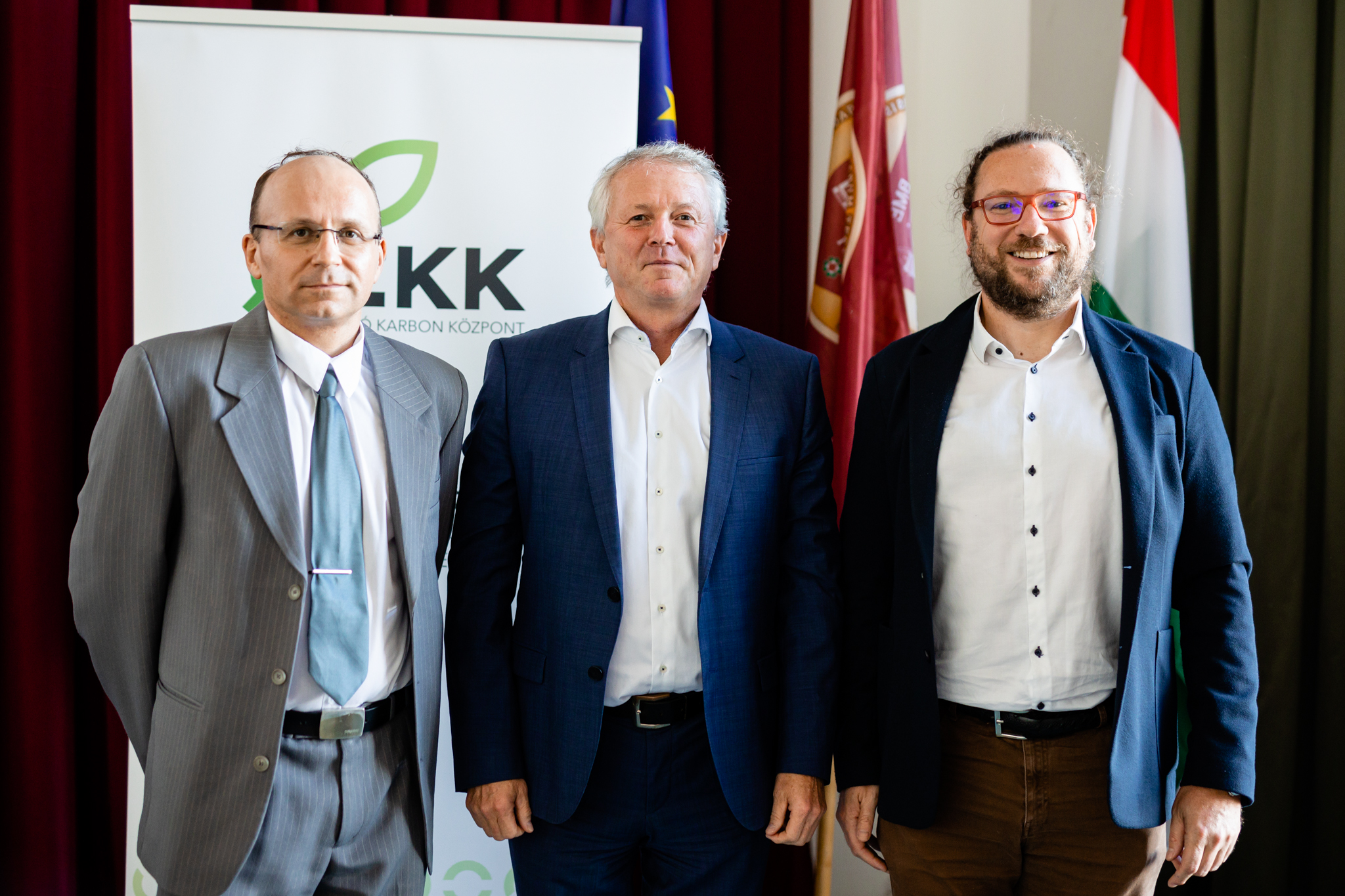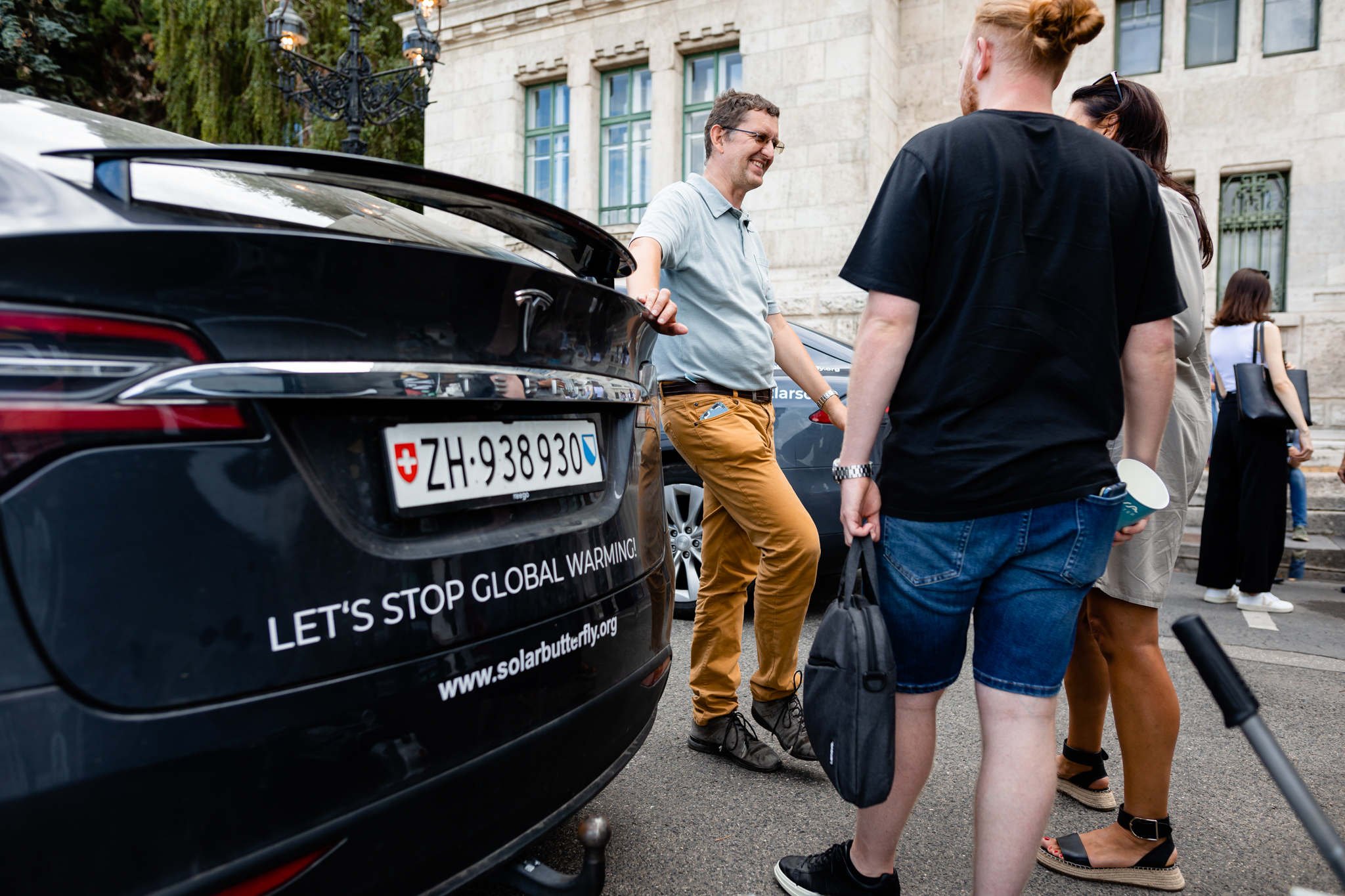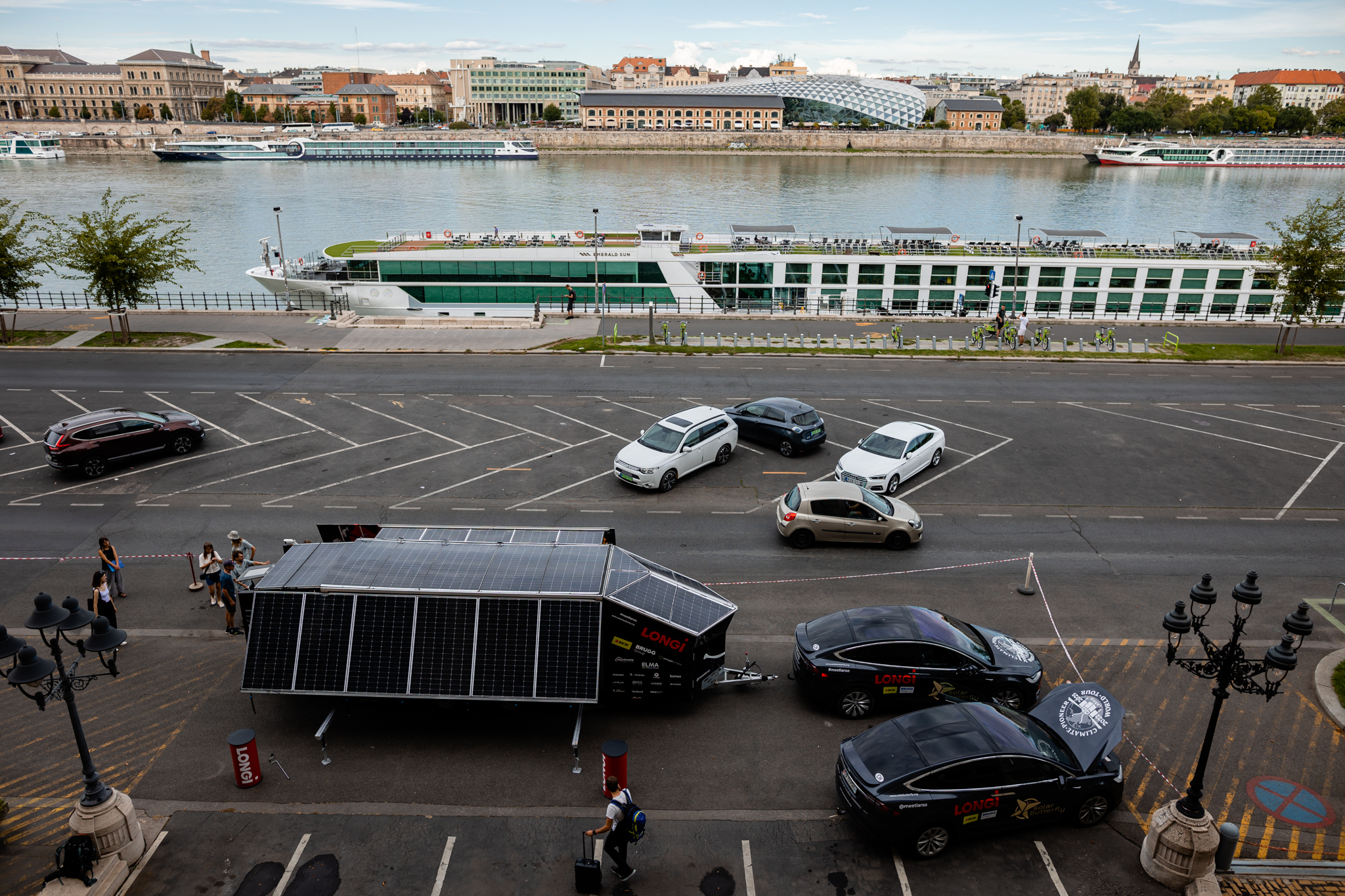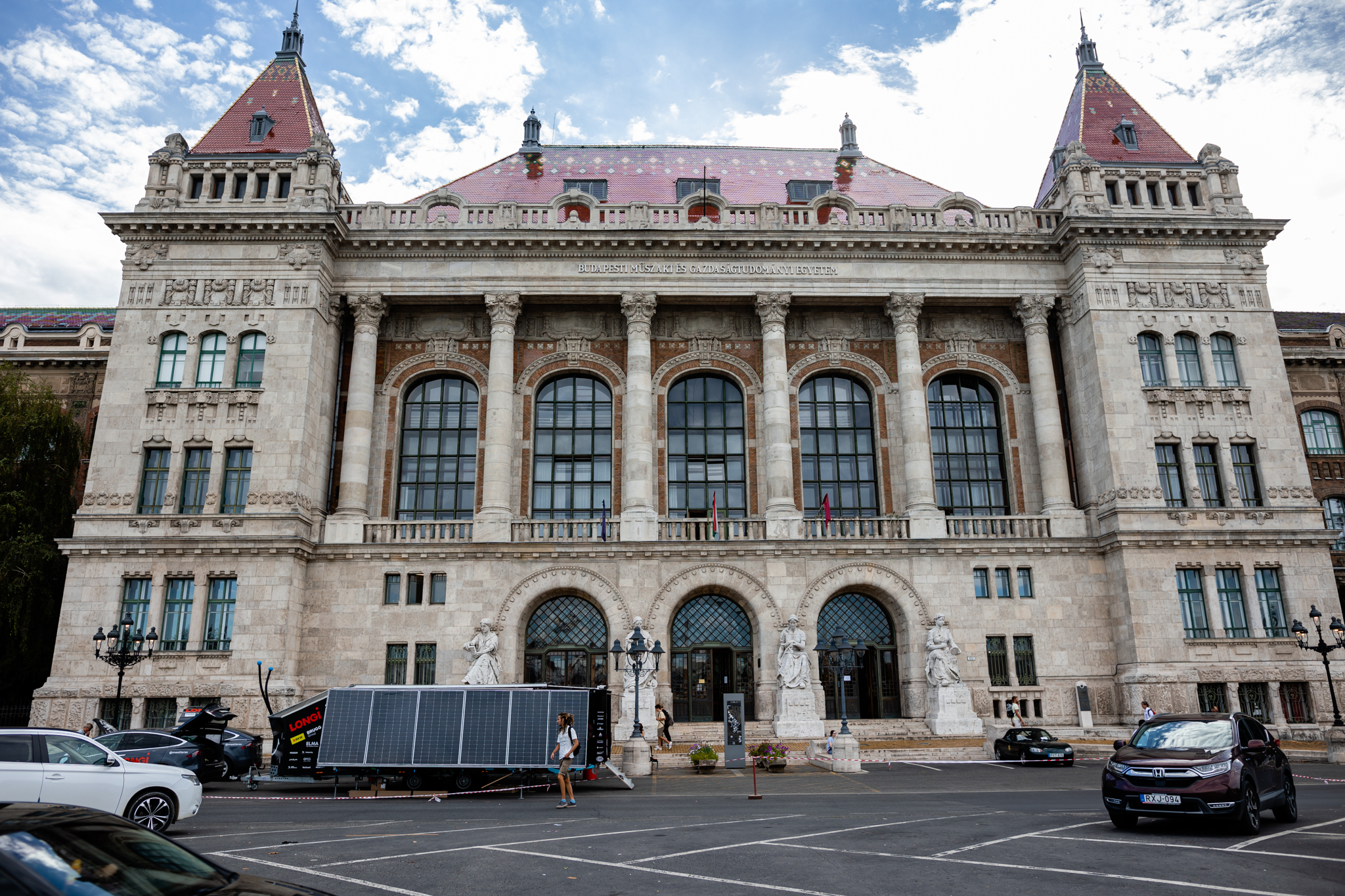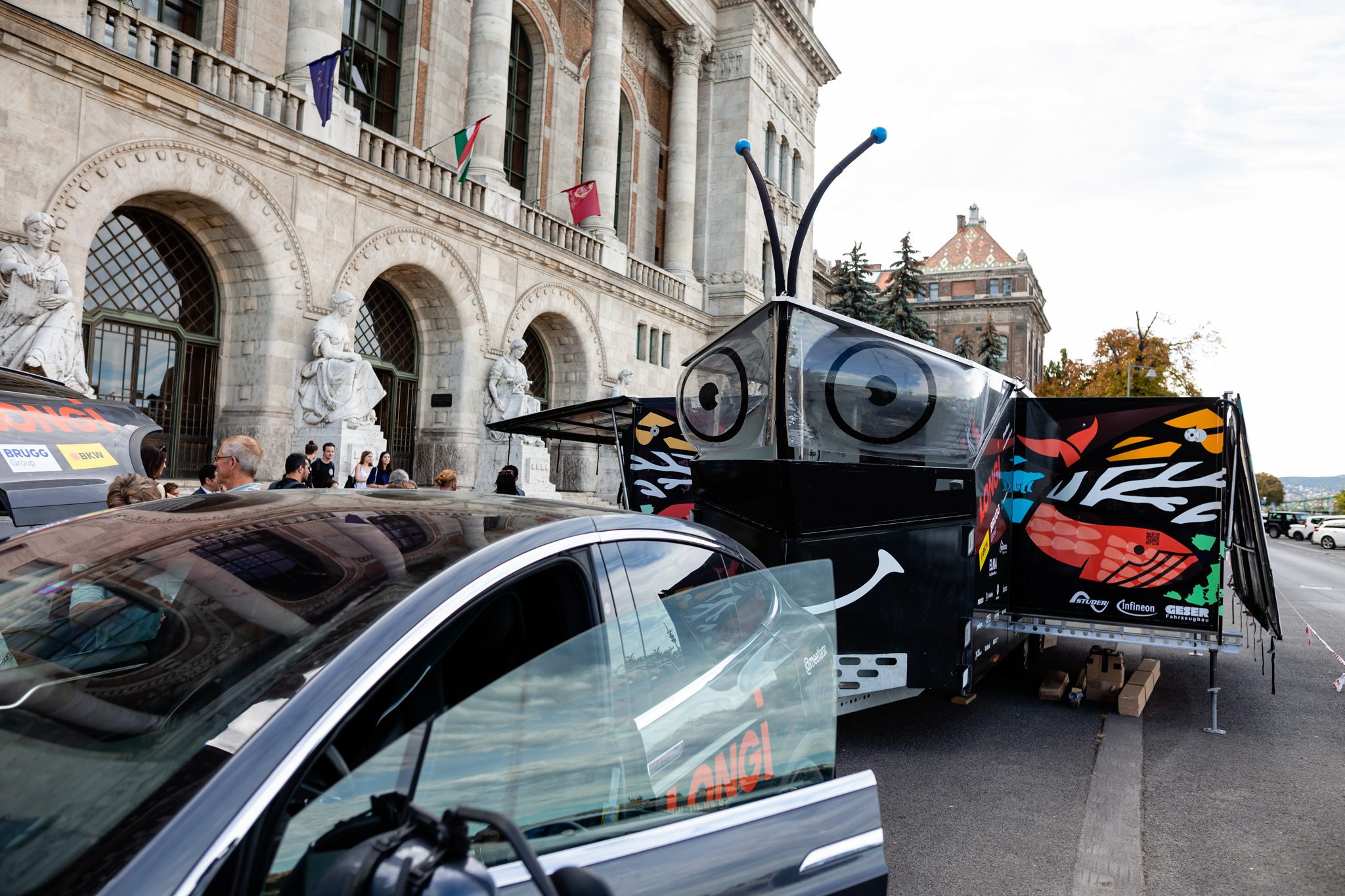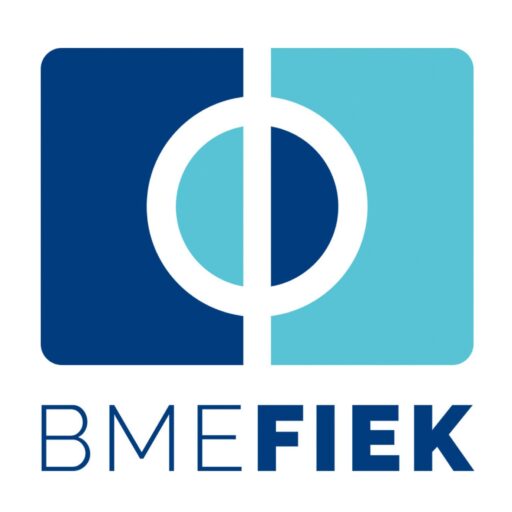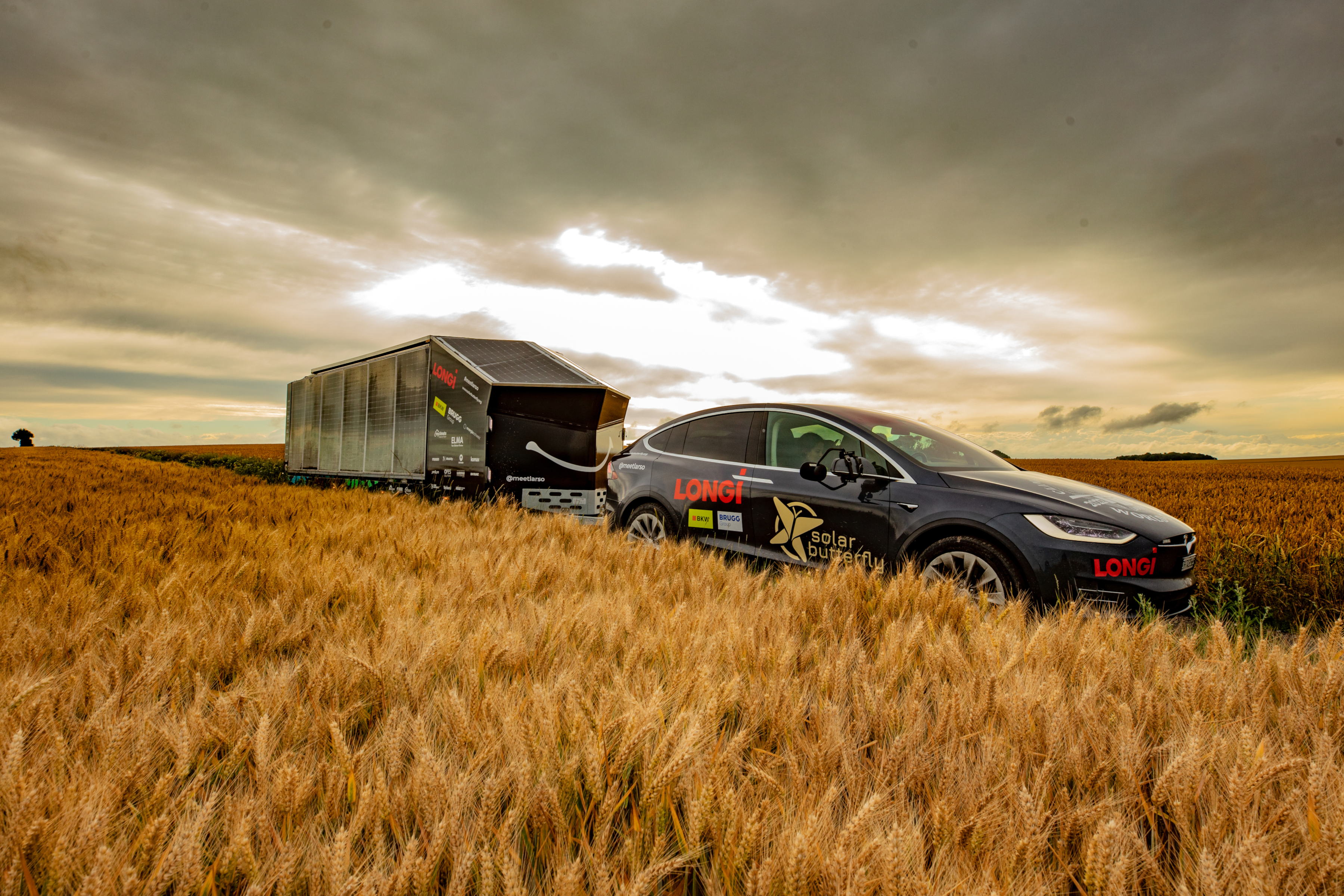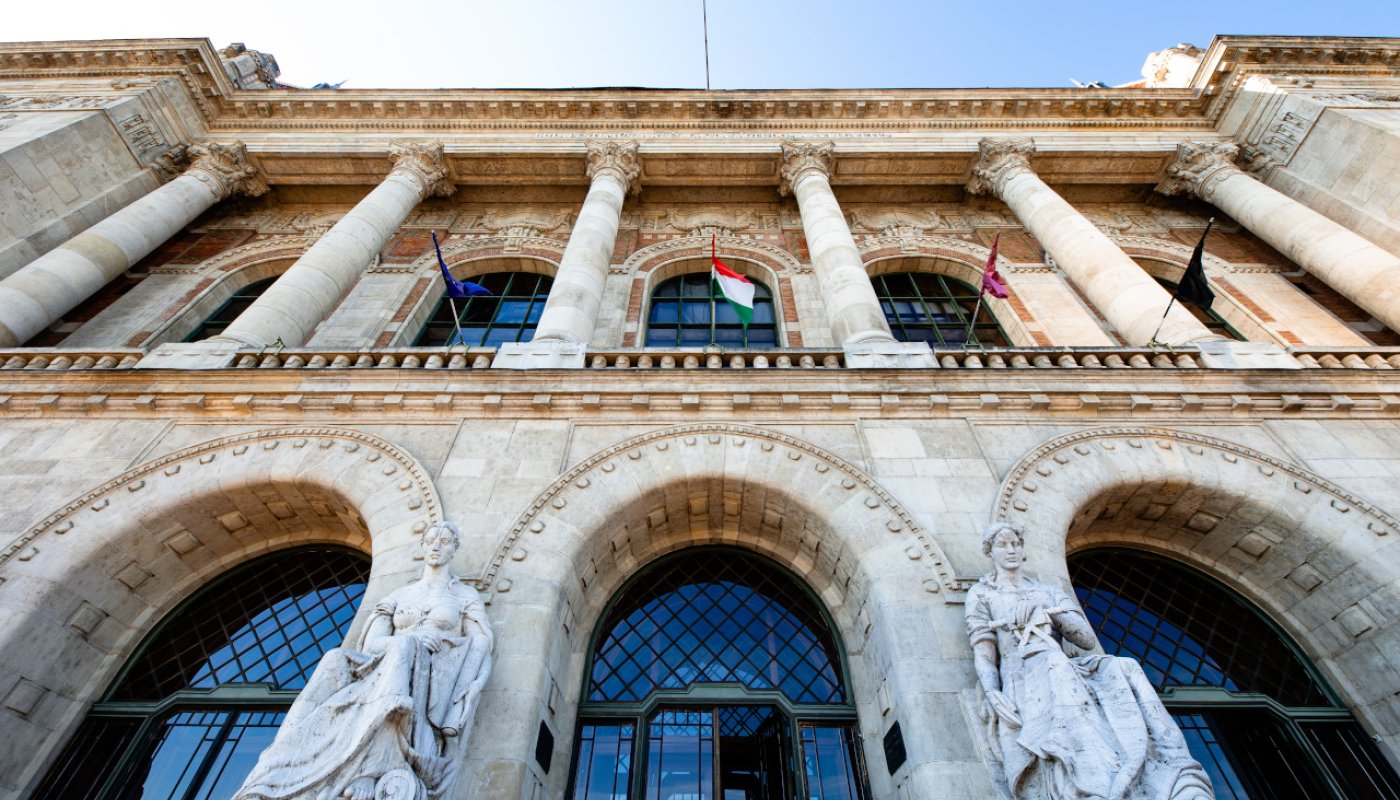2022. szeptember 9. – A fenntarthatóság jegyében szervezett látványos bemutatóval egybekötött eseményt a BME Zéró Karbon Központ. A hagyományteremtő céllal létrejött esemény első felében a hallgatók megismerkedhettek az egyetemi klímastratégia főbb elemeivel, a BME elektromobilitás területén végzett kutatásaival és az ipar és az egyetem együttműködéséért felelős FIEK tevékenységével. Ezt követően pedig a Solar Butterfly, az első elektromos autó vontatta, 100%-ban megújuló energiával működő lakókocsi is begördült a Műegyetem rakpartra.
A BME felismerte, hogy az oktatási és kutatási tevékenységén túl saját működésével is követendő példát mutathat a klímaváltozás elleni küzdelemben. Kaderják Péter, a hazai klímacélok elérésének elősegítésére létrejött Zéró Karbon Központ vezetője megnyitójában kiemelte:
Megkezdődött egy olyan átfogó gondolkodás az egyetemen, amely azt célozza, hogy a BME ’zöld energia élő labor’-rá változzon. Ennek keretében az egyetem lehetőséget teremt a zöld átállásra és energiakrízisre választ adó megoldások, innovációk fejlesztésére, tesztelésére, oktatására és demonstrációjára a campus területén.
A fenntartható működés elősegítésére a BME saját egyetemi klímastratégiát készít, melynek fókuszában az épületek energiafogyasztásának csökkentése, a hulladékgazdálkodás és a közlekedéssel kapcsolatos kibocsátások csökkentése áll. Levendovszky János, tudományos és innovációs rektorhelyettes elmondta:
A cél egy fenntartható zöld egyetem, amely ma már összekapcsolódik az egzisztenciális kérdéssel: finanszírozható rezsi a működéshez. Ez egy tudásintenzív kihívás és optimalizációs feladat, amelyhez tudományos kompetencia szükséges. Fontos, hogy a BME kutatói és oktatói tudásvagyonával hozzá tudjon járulni ezeknek a problémáknak a megoldásához és hogy a tudásvagyon hasznosulása az egyetemi szinten túl az oktatás révén társadalmi és egyéni szinten is megjelenjen.
Az egyetem komoly hagyományokkal rendelkezik az elektromobilitással kapcsolatos kutatás területén, melynek jelentőségét az elmúlt évek eseményei is felerősítették. Csiszár Csaba, a Közlekedésmérnöki és Járműmérnöki Kar egyetemi docense előadásában kiemelte: Globális szinten az üvegházgázkibocsátások egynegyedéért a közlekedési szektor felel. Az elektromobilitás fejlődését egyszerre alakítja a járműpiac változása és az energiarendszer igényei, átalakulása. A BME Elektromobilitás kutatócsoportjának kutatásai ezért kiterjednek a töltőinfrastruktúra telepítés optimalizálására, az elektromos jármű felhasználói elvárások feltérképezésére, az elektromos autóbuszok üzemeltetésének optimalizációjára, autóbérlés és tulajdonlásra vonatkozó döntések vizsgálatára. Továbbá egyszerű eszközökkel is támogatják a felhasználók döntéshozatalát, létrehoztak ehhez az egyetemi honlapon is elérhető e-autó költségkalkulátort. Csiszár Csaba hangsúlyozta: egyfajta tudásformálásra van szükség és a kikerülő mérnökök a legjobb alanyai ennek a formálásnak.
Az a fajta innovációs tevékenység, amely az egyetemen folyik, egyedülálló az országban. Az a cél, hogy a BME ennek a tudásnak a minél jobb hasznosítását elősegítse, és hasonlóan a neves nyugati egyetemekhez önfenntartóan tudja működtetni innovációs tevékenységét. Ehhez a FIEK iparjogvédelmi irodát, Z10 inkubációs teret, Kutatói kompetencia térképet, Horizon Europe irodát, és átfogó pályázati menedzsmentet nyújtó infrastruktúrát üzemeltet. Végül a dekarbonizációs témát kiemelten kezelve egy külön tudásközpontot, a Zéró Karbon Központot is felállította.
A szakmai programot követően Louis Palmer, a félig magyar származású feltaláló mutatta be a K épület előtt új projektjét, a Solar Butterfly-t, melyet azzal a céllal hívott életre a környezetvédelmi kalandor, hogy felhívja a figyelmet a Párizsi Klímaegyezményben rögzített kibocsátáscsökkentési célok fontosságára, illetve, hogy a megújuló energiákban rejlő megoldási lehetőségekre irányítsa a fókuszt, konkrét innovációs megoldásokat bemutatva. Az első elektromos autó vontatta, napelemekkel felszerelt, 100%-ban megújuló energiával működő lakókocsi 3,5 év alatt, 90 országot meglátogatva, 200.000 km-t autózva kerüli meg bolygónkat, hogy 2025. decemberében érkezzen vissza Párizsba, a Párizsi Klímaegyezmény aláírásának 10. évfordulóján.
